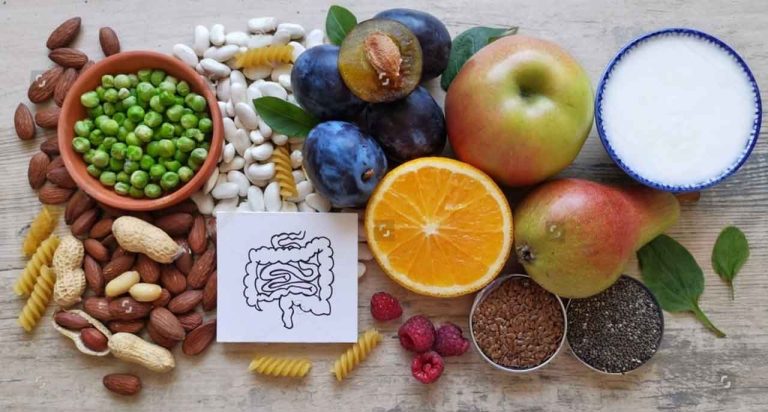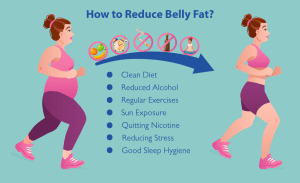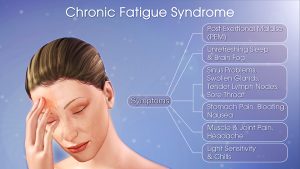Protein is one of the essential macronutrients that help our bodies to function properly (other macronutrients are carbohydrates and fats). Our body has to break down the protein in our food into different amino acids. After that, these amino acids create the protein that our body requires for different needs. The protein in supplement forms is not directly absorbed in muscles. It has to undergo the necessary process which the body needs to convert protein to digestible form.
These amino acids are divided into two categories essential amino acids and non-essential amino acids. The non-essential amino acids can be made by the body itself and the essential amino acids cannot be made by the body, thus, the body needs them from external sources.
Based on their availability, Protein can be divided into two main categories:
Animal-based protein and Plant-based protein. Animal-based proteins include meat, poultry, fish, eggs, and dairy products. Plant-based proteins include beans, lentils, nuts, seeds, soy products etc.
Benefits/role of Proteins
- Necessary for growth and repair;
- Linked to our immunity;
Contributes to the proper functioning of digestion and metabolism;
- The respiratory system is also impacted by proteins;
Proteins also regulate, reproduction, and blood pressure.
- Proteins provide nutrition to our cells and tissues;
- We need to eat protein-rich foods to ensure that our bodies have the amino acids they need to make new proteins.
- It’s important to eat a variety of protein-containing foods to get all the essential amino acids your body needs.
- It helps to build and repair tissues, produces hormones and enzymes, and aids in the absorption of nutrients.
- Weight management: Protein can help with weight loss or weight maintenance by increasing satiety (feeling of fullness) and reducing calorie intake. It can also help to preserve muscle mass during weight loss.
- Lower blood pressure: A high protein diet has been shown to lower blood pressure in people with hypertension (high blood pressure). This effect may be due to the amino acids in protein which widen blood vessels.
- Improved cholesterol levels: Protein has been shown to improve cholesterol levels by reducing LDL cholesterol (the “bad” cholesterol) while increasing HDL cholesterol (the “good” cholesterol). This effect is thought to be due to the amino acids in protein which help to remove excess LDL cholesterol from the blood.
- Reduced risk of heart disease: A high protein diet has been associated with a reduced risk of heart disease. This may be due to the effects of protein on improving cholesterol levels and lowering blood pressure, as well as other mechanisms.
Plant Protein vs Milk Protein Pros and Cons
PLANT PROTEIN
Pros: Plant proteins are much easier for the body to digest than animal proteins and can be a good alternative for those who cannot consume dairy.
They are also generally lower in saturated fats and cholesterol, making them a healthier choice.
Plant proteins contain important vitamins and minerals such as iron, zinc, magnesium, and many B vitamins which can help support the healthy functioning of the body’s cells.
They are typically lower in calories and fat than animal-based proteins, and they are also a good source of fiber and other nutrients.
Plant-based proteins tend to be more environmentally friendly than animal-based proteins.
If you’re looking to increase your protein intake, there are many delicious and nutritious plant-based protein sources to choose from. Here are a few of our favorites:
Beans: Beans are a great source of protein, fiber, vitamins, minerals, and antioxidants. They can be enjoyed cooked in a variety of dishes or used as a replacement for meat in recipes such as veggie burgers or tacos.
Lentils: Lentils are another excellent source of protein, fiber, vitamins, minerals, and antioxidants. They can be cooked in soups or stews or used
Cons: Plant proteins tend to be incomplete proteins, meaning they do not provide all of the essential amino acids that our bodies need. This means that if you rely solely on plant-based protein sources for your nutrition needs you may be missing out on important nutrients. Additionally, some plant-based proteins can be harder to digest than animal-based ones and may cause stomach upset or other digestive issues in people with sensitive digestion.
Plant protein sources include legumes (e.g. lentils, beans, and peas), nuts and seeds, tofu, tempeh, seitan, grains (quinoa, amaranth), and certain vegetables such as broccoli and spinach.
MILK PROTEIN
Pros: Milk protein is a complete protein source, meaning it contains all of the essential amino acids needed by our bodies for muscle growth and repair.
Protein and Weight Loss
Studies have shown that eating more protein can help with weight loss. Protein is also more filling than other macronutrients, so it can help you eat less overall. This can reduce overall calorie intake by curbing hunger and preventing overeating. And because it takes more energy for your body to digest protein, you’ll burn a few extra calories as well. This can boost your metabolism and increase calorie expenditure.
Further, during weight loss, it’s important to preserve muscle mass. Adequate protein intake helps maintain muscle mass while promoting fat loss. Muscle mass is metabolically active and helps burn more calories even at rest.
Protein helps stabilize blood sugar levels by slowing down the absorption of glucose into the bloodstream after meals. This can prevent spikes and crashes in blood sugar levels, reducing cravings and promoting a more stable energy level throughout the day.
Fat Loss: High-protein diets have been shown to promote greater fat loss, particularly around the abdominal area, which is associated with reducing the risk of chronic diseases like type 2 diabetes and heart disease.
If you’re trying to lose weight, aim for 1–1.5 grams per kilogram. So if you weigh 68 kg, that would be 68 to 108 grams of protein per day. You can get this amount from food or supplements.
Diabetes and protein
Protein can be beneficial for people with diabetes. It has been shown to improve glucose control, reduce cravings and hunger, and promote feelings of fullness.
What is the correct time to include protein in your diet?
The best time to include protein in your diet is with meals and snacks, as well as shortly after a workout. Eating protein at regular intervals throughout the day can help maintain a positive nitrogen balance (an important factor for muscle growth and recovery). It is also beneficial to eat high-quality sources of protein. It has also been seen that a diet containing good amount of protein taken as a dinner( preferably early dinner) prevents the hunger pangs and helps to those who aim to observe intermittent fasting.
How Much Protein You Need?
There are a lot of different opinions out there about how much protein people need. The truth is, that your protein needs depend on a lot of factors, including your age, activity level, and muscle mass.
Generally, children and adolescents require more protein than adults, as their bodies are still growing and developing. The recommended daily allowance (RDA) for protein is 0.8g/kg body weight for adults, while the RDA for teenagers aged 14-18 is 1.2g/kg body weight. It’s important to note that these are just general guidelines and individual needs may vary.
If you want to build muscle mass, you may need even more protein. Some studies suggest that consuming 1 to 1.2 grams per pound of body weight can help build muscle mass in people who lift weights regularly. So, if you weigh 140 pounds and lift weights regularly, you may need up to 168 grams of protein per day to see results.
Protein requirements can also increase as we get older. That’s because aging muscles lose some of their ability to synthesize new proteins. So, elderly adults may need up to 1 gram of protein per pound of body weight to maintain muscle mass.
Kindly decide your protein intake in view of your overall health and needs, It may be noted that at a given time we can absorb around 12 grams of proteins. Any amount of proteins taken in excess of the body’s capacity to digest is stored by the body as glucose and is converted to fat.
How to Handle Bloating After Intake of Protein
If you experience bloating after eating protein, it is likely due to an intolerance or sensitivity to the food item. To help manage the bloat, try avoiding the particular food item that causes your symptoms and look for other sources of protein in your diet. You can also try taking digestive enzymes with meals containing protein to help ease digestion. Additionally, drinking plenty of water throughout the day can help reduce bloating and make sure your body is getting adequate hydration. Finally, if these strategies fail to alleviate your symptoms, speaking with a healthcare professional may be beneficial to identify potential underlying medical issues causing the bloating.
Protein and Hair Health
Protein is an essential part of healthy hair growth. It helps to add strength and elasticity to the hair shaft, which can reduce breakage and splitting. It also helps to promote healthy scalp circulation and nourishes the scalp with essential vitamins and minerals that are needed for healthy hair growth. Additionally, protein-rich foods help support overall health, which can be beneficial for hair health as well.
Protein and Skin Health
Protein is an important part of skincare, as it helps to strengthen and repair the skin’s protective barrier, which can help reduce wrinkles and signs of aging. It is also needed to produce collagen and elastin, which are essential components of healthy skin. Eating foods high in protein can also help support overall health and wellness, which can have a positive impact on the skin’s appearance. Additionally, using a topical protein-rich product such as a moisturizer or serum can be beneficial for maintaining the skin’s health.
Protein and Gut Health
Protein is an important macronutrient for supporting gut health. It helps to nourish the beneficial bacteria in the gut, which support digestion and a healthy immune system. Protein also helps to repair and rebuild damaged cells in the gut lining, allowing it to function more efficiently and effectively. Eating protein-rich foods can also help keep you full longer and provide energy.
Liver and its Role in Protein Digestion
The liver plays an important role in protein digestion. It produces enzymes that help to break down proteins into their component amino acids, which are then absorbed by the small intestine and used to build other proteins in the body. The liver also helps to regulate blood sugar levels and store nutrients. Additionally, it detoxifies chemicals and metabolizes fats, carbohydrates, and proteins. For the liver to function optimally, it needs a balanced diet with adequate amounts of protein.
Kidney Disease and Protein Intake
For those with kidney disease, it is important to monitor protein intake carefully. Too much protein can increase waste products in the blood, putting additional strain on the kidneys and potentially causing further damage. However, for those with mild to moderate kidney disease, a moderate amount of protein (0.6-0.75 g/kg/day) is generally recommended by doctors as part of a healthy diet. It is also important to choose high-quality sources of protein.
How is Protein Digested?
Protein is digested in the stomach and small intestine by enzymes called proteases. These enzymes break down the bonds between amino acids. Which are then absorbed into the bloodstream and used to build new proteins in the body. Protein digestion begins in the stomach with hydrochloric acid, which helps break down the large protein molecules. In the small intestine, proteases further break down the proteins into smaller peptides and amino acids so they can be absorbed by cells in the gut wall. Finally, these amino acids are transported to various parts of the body where they are used to build new proteins.
Muscle Building and Protein
Protein is an essential part of muscle building, as it is the main component of muscle tissue. Eating adequate amounts of protein can help to stimulate muscle growth and repair, while also providing energy for strength training workouts. To maximize gains in muscle mass and strength, it is important to eat enough protein both before and after your workouts.
Protein Supplements
Protein supplements are a quick and convenient way to increase your daily protein intake. They come in many forms, such as protein bars, powders (whey, casein, and plant-based), and ready-to-drink shakes. Protein supplements can be useful for those who are looking to increase their muscle mass or reach specific fitness goals. However, it is important to remember that dietary alterations should always be discussed with a healthcare professional before making any changes. Additionally, it is always best to try and get the majority of your daily protein from natural food sources before relying on supplementation.
Protein Isolate vs Protein Concentrate
Protein isolate is a highly refined form of protein that has been processed to remove the majority of fat, carbohydrates, and lactose. As such, it contains a higher amount of protein per serving than a protein concentrate. Additionally, protein isolate is absorbed faster by the body than a concentrate, making it an ideal choice for those looking to quickly repair muscle tissue after working out. Protein concentrate is less highly processed than an isolate. And retains more of the other components found in foods such as fats and carbohydrates. It also tends to be cheaper than an isolate, making it more accessible for many people.
Can the Body Store Protein?
The body cannot store protein for long-term use, so it’s important to consume adequate amounts of protein on a daily basis. Protein can be stored in the muscles and liver for short periods of time, but only in small amounts. The body will metabolize any excess protein as energy or convert it into fat. Therefore, if you are looking to increase muscle mass or strength, it is important to get enough protein on a daily basis from natural sources.
Is excess protein toxic to the body?
Although protein is essential for the body, consuming too much can be toxic. Excess protein can lead to a buildup of toxins and waste products in the blood, which can put extra strain on the kidneys and cause dehydration. Additionally, eating too much animal protein on a regular basis may increase your risk of developing certain types of cancer and other chronic diseases. Therefore, it is important to consume adequate amounts of protein from natural sources.













